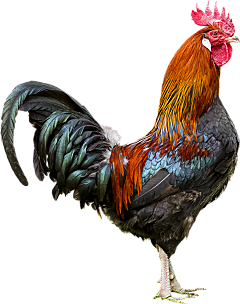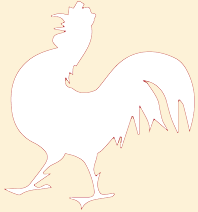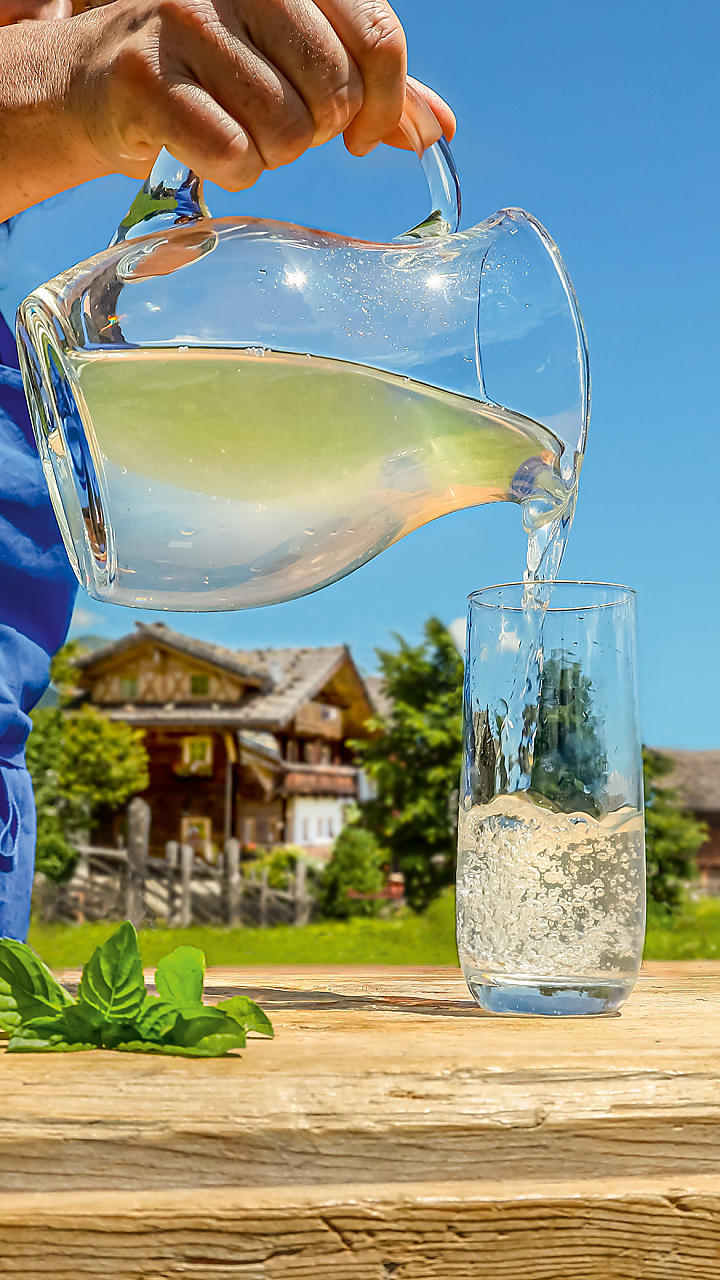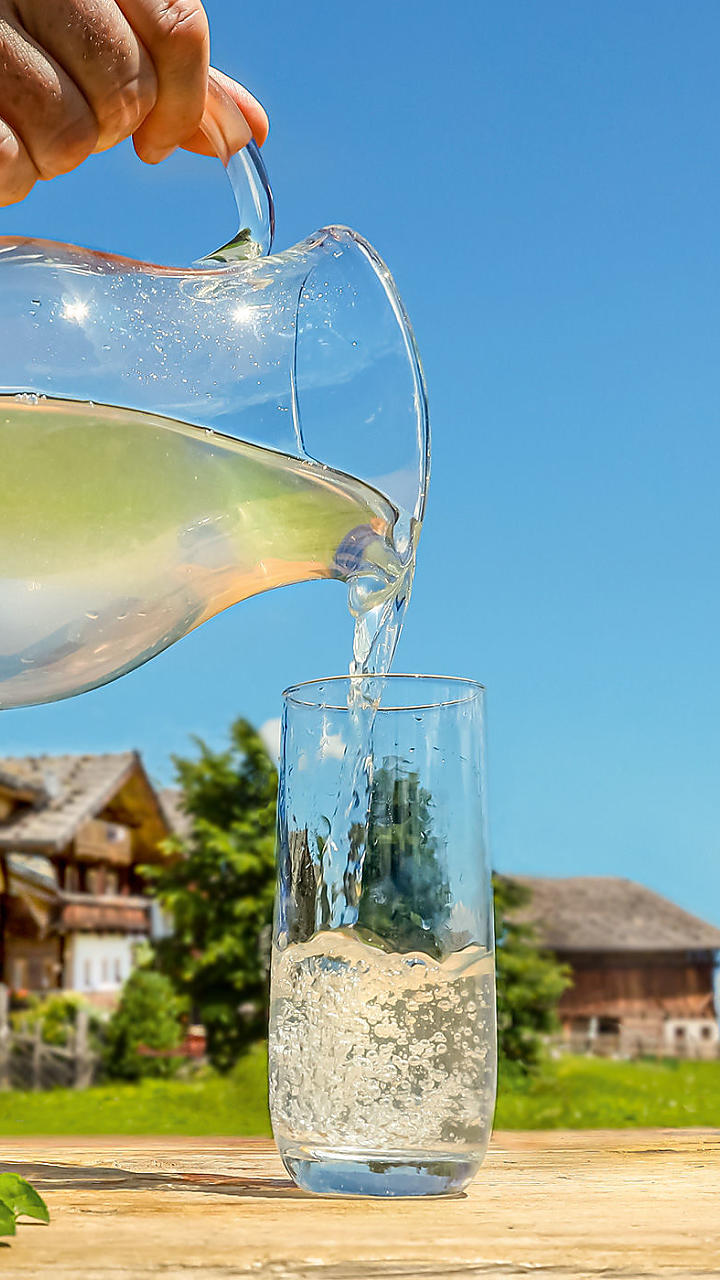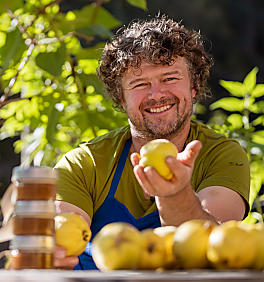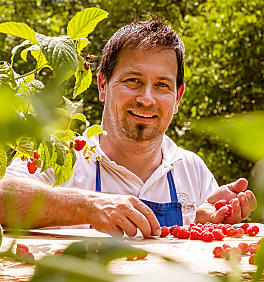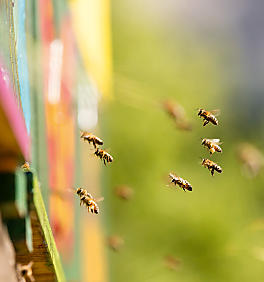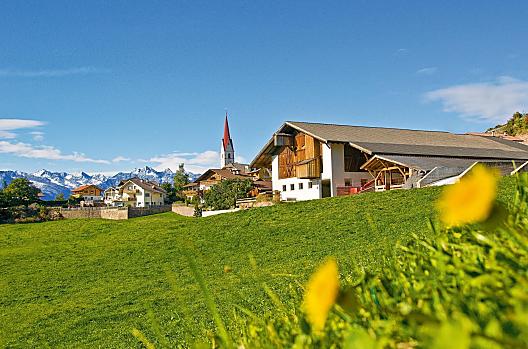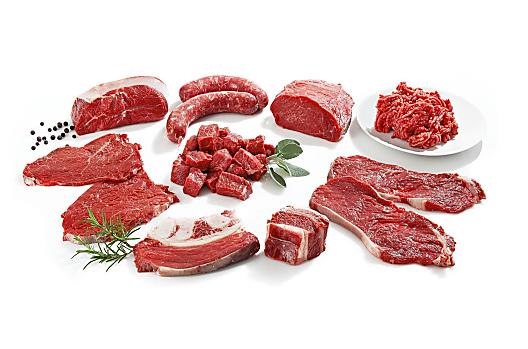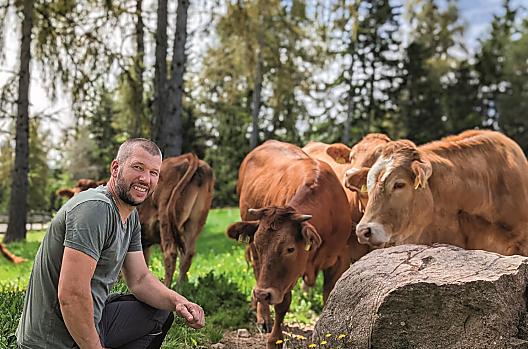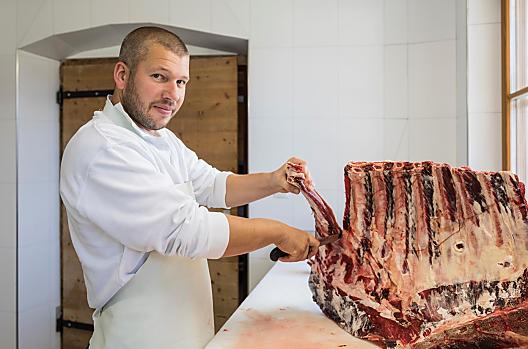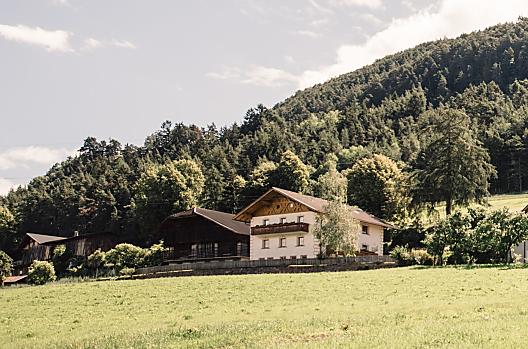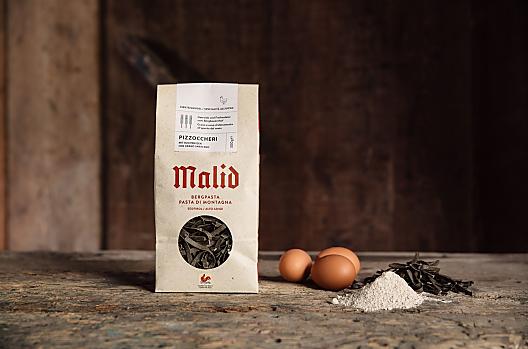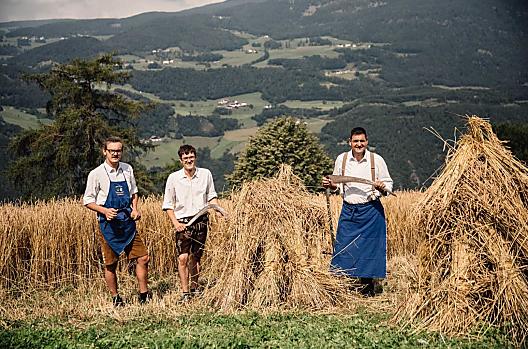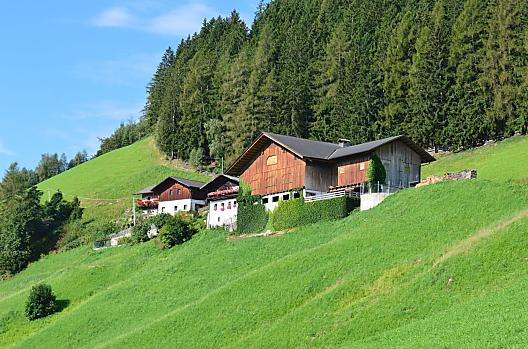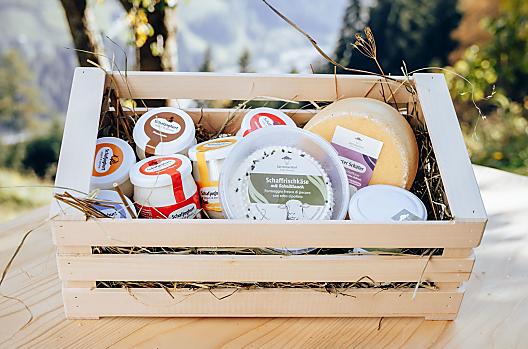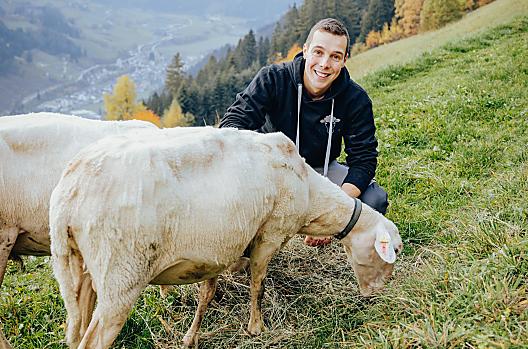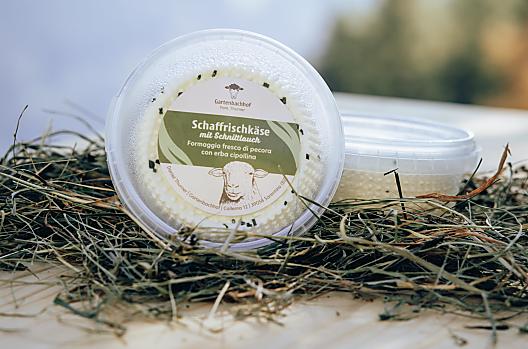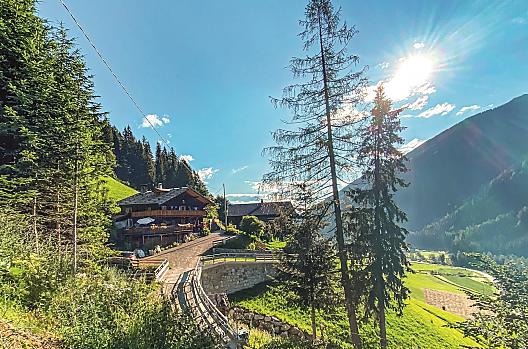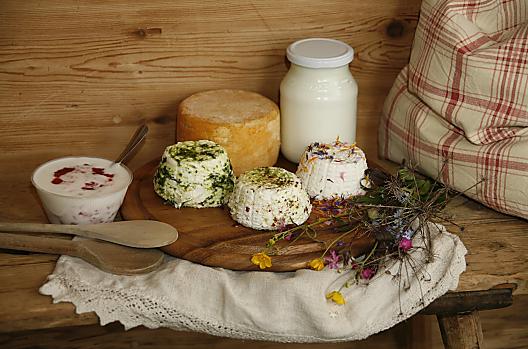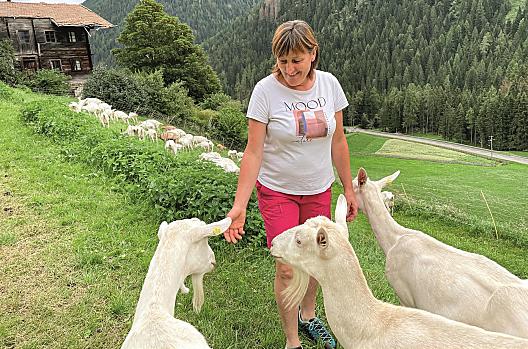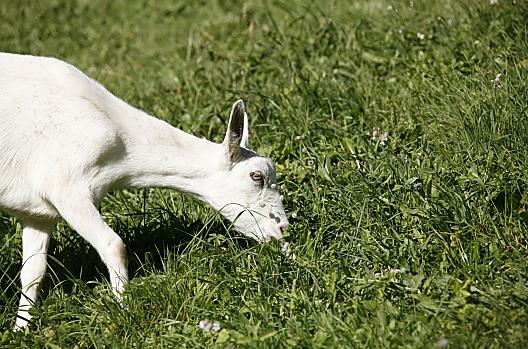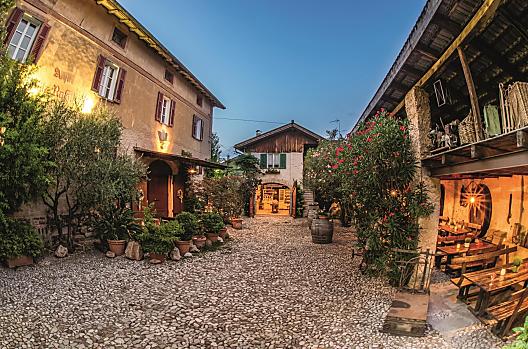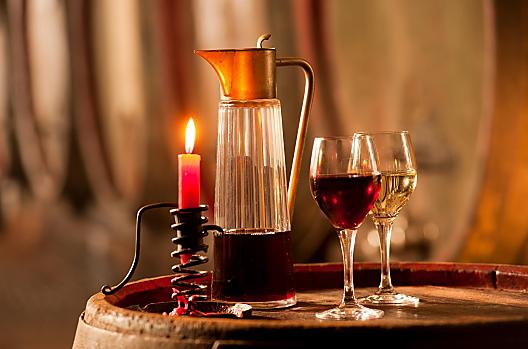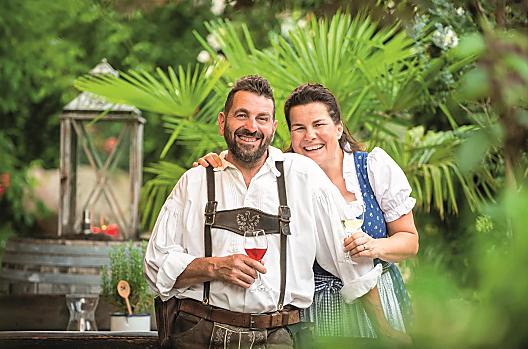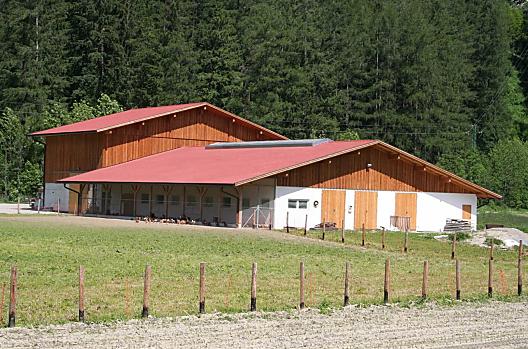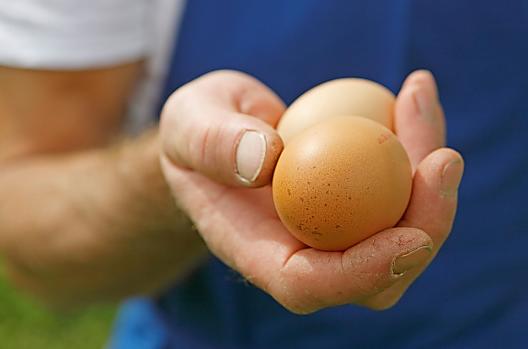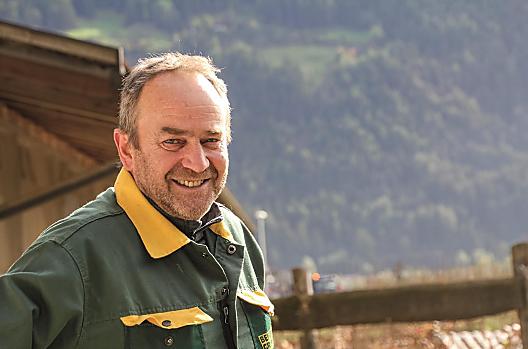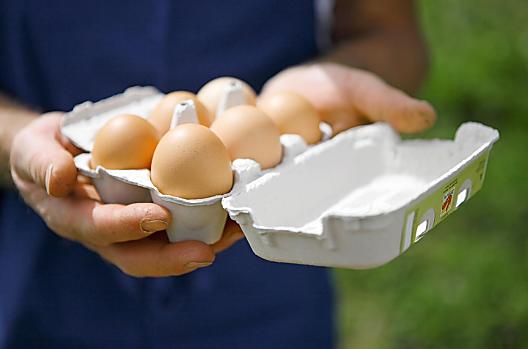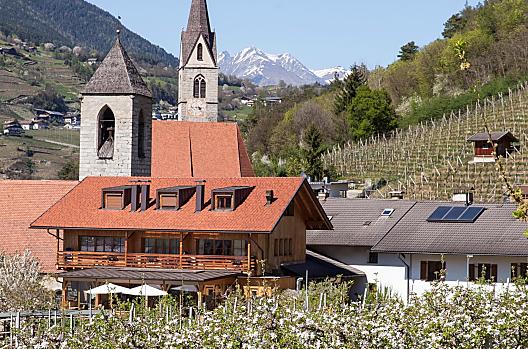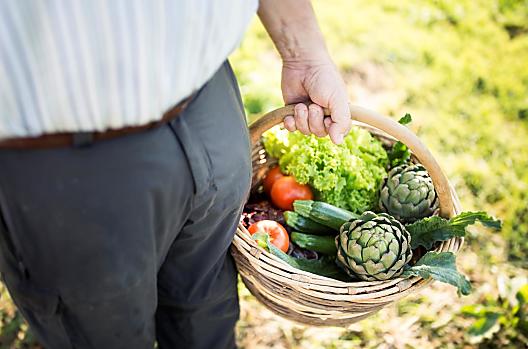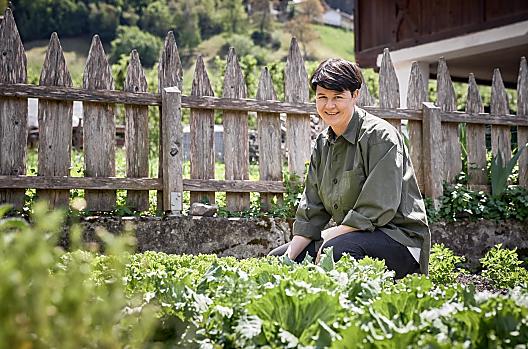Quality products from the farmer
Without additives
The products of the "Roter Hahn" brand are mainly natural products, without artificial flavours, colours, flavour enhancers and synthetic preservatives. Why do they manage to do what the industry often fails to do?
The products of the "Roter Hahn" brand are mainly natural products, without artificial flavours, colours, flavour enhancers and synthetic preservatives. Why do they manage to do what the industry often fails to do?
To obtain the "Roter Hahn" seal of quality, the use of additives and auxiliary materials is precisely regulated. Raw materials and auxiliary materials must be free of genetically modified microorganisms. Only especially gentle processes are used for preservation. Artificial flavours and colorants are not permitted. Roter Hahn products therefore contain only what nature provides. Behind this there is a lot of knowledge about natural processing methods and a deep conviction that food should not only be safe and tasty, but also honest and unadulterated.
Good things take a while
In order for certain flavours to develop in a product, you have to allow enough time for aging. Since time is known to cost money, there are ways to shorten this process by adding artificial flavours. This is not an option for Roter Hahn direct marketers. They give their products such as cheese, sausages or bacon all the time it takes for the desired flavours to develop in the course of maturation. But it's not just flavours that need time; achieving a certain consistency and shelf life also requires patience. If, for example, bread dough is left to "rise" for several hours or, even better, a few days, no additives are needed either to ensure that the bread retains its intense flavour and long shelf life. A Roter Hahn rye bread, for example, gets by with only 3 ingredients: Rye flour, water and salt and most importantly: it tastes excellent.
Picked, high-quality raw materials
The farmers of the "Roter Hahn" brand resort exclusively to picked goods for the production of fruit juices. This is more elaborate and expensive, but it results in a juice that can retain the natural cloudiness so well and tastes beautifully fruity and pure. So a Roter Hahn apple juice contains fruit picked by hand - and nothing else. For example, anyone who uses what is known as fallen fruit for the production of apple juice (i.e. fruit that has already fallen from the tree to the ground and where the first rotting processes have already begun) has to use countless tricks in processing so that the rotting aromas are no longer detectable in the juice.
Care in detail
Whoever works in a meticulously hygienic way can do without the addition of synthetic preservatives sooner than someone who has to be quick above all else in processing. In the production of Speck (the local bacon), for example, farmers manage to do without the widespread nitrite pickling salt altogether. To do this, they pay very close attention to maintaining certain temperatures and thereby make a greater effort in natural salting. When preserving fruit spreads, artificial preservatives such as potassium sorbate can also be dispensed with. For this purpose, however, the Roter Hahn producers are required to work to high standards of cleanliness and to fill the spreads hot enough into the sterile jars.
Continually produce fresh products
For some products, despite best efforts, shelf life is reduced once artificial preservatives are eliminated. In such cases, the direct marketers nevertheless do not compromise and produce smaller quantities due to the shortened shelf life and accordingly produce more frequently. A longer-lasting fruit yogurt, for example, would of course be easier to market. But if that meant using fruit with synthetic additives, our farmers would do without. And they do so out of conviction!
Farm search
Quality products from the farmer
- Mixed pack of beef
- ‘Speck' and sausages
- Bread, pasta and grain
- Campanelle
- Pizzoccheri (short tagliatelle)
- Fusilli
- Cheese and dairy products
- Cheese and dairy products
- Wine
- Lagrein rosé malefiz
- Free range eggs
- Jams
- Fruit cordials
- Fresh fruit and vegetables

